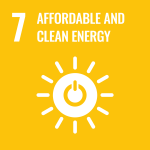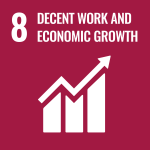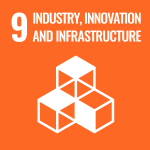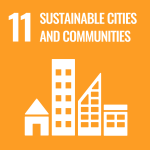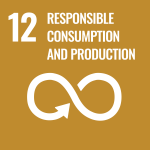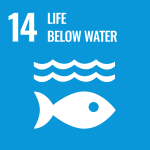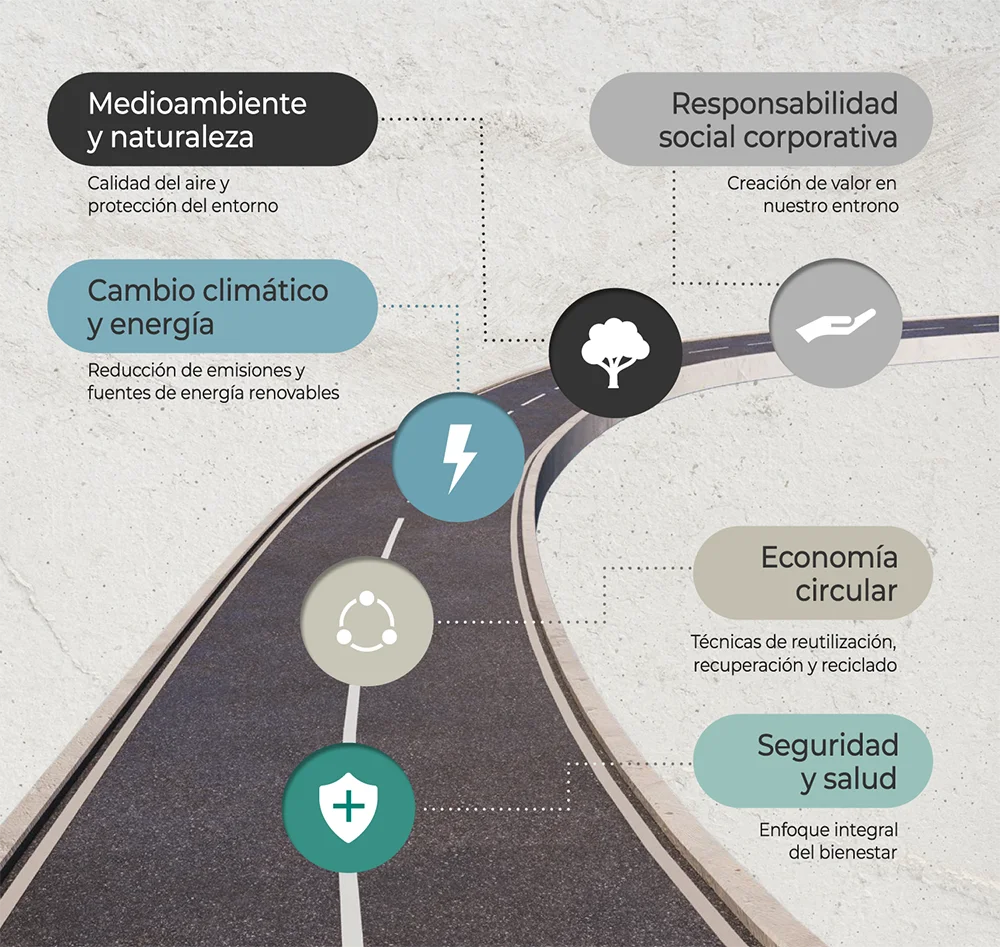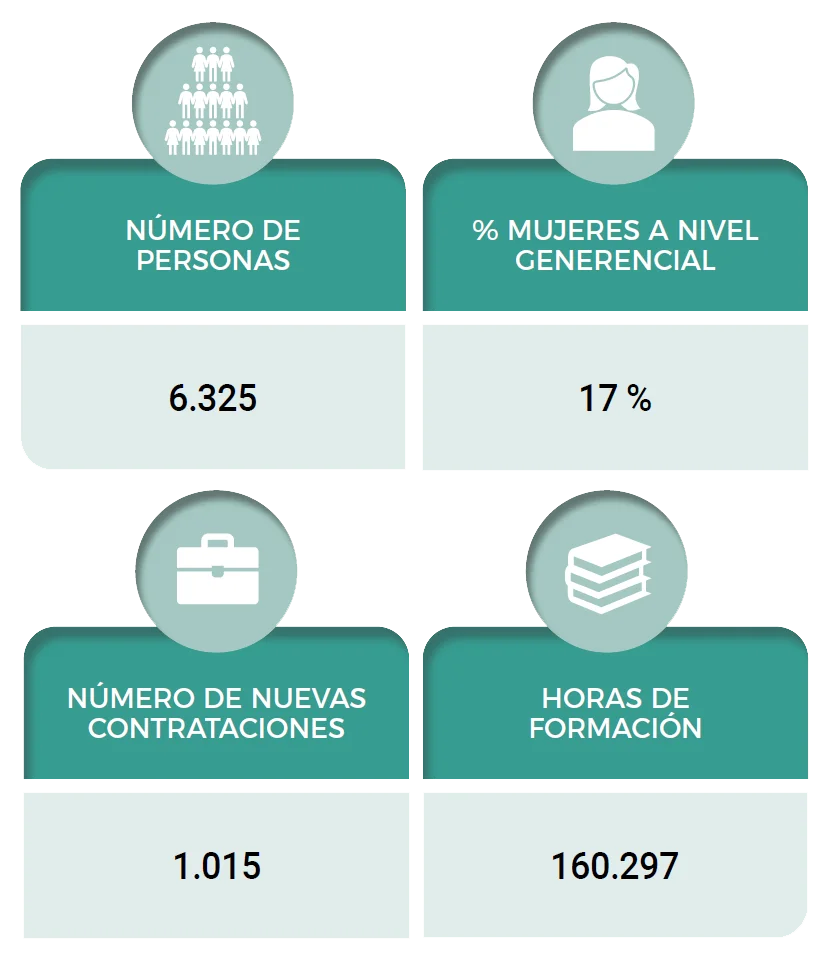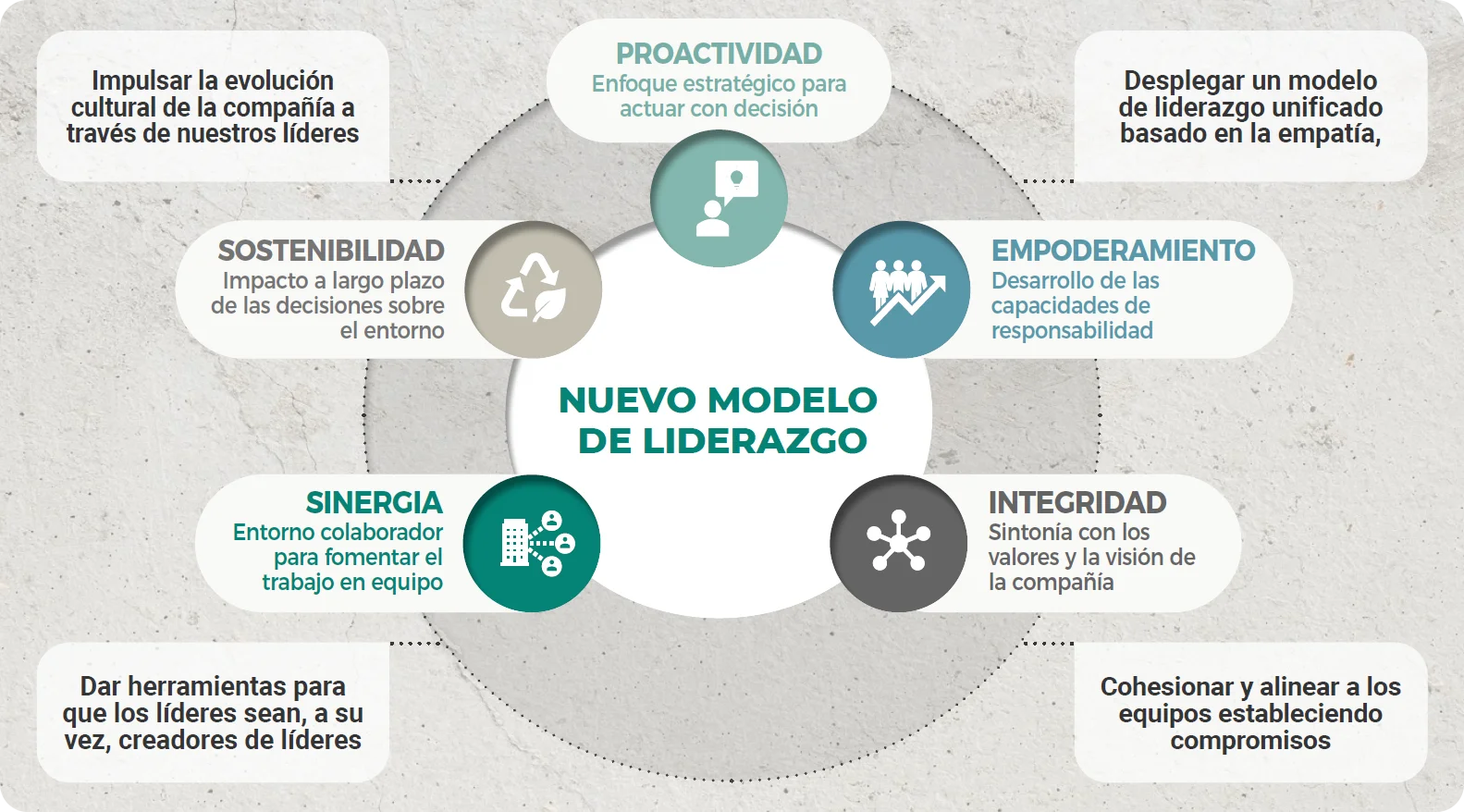4
Strategy on sustainable growth
The cement industry has consolidated itself as one of the key sectors for building a sustainable future (reducing greenhouse gas emissions, investing in new products and technologies, providing stable employment to ensure long-term development and financial stability, etc) As active members of the GCCA (Global Cement and Concrete Association) and with the aim of meeting this sector climate goal, since 2020 we have been working on a strategic approach in line with its guidelines
Sustainable Development Goals

Since 2020, we have been part of the United Nations Global Compact, thus reaffirming our commitment to the Sustainable Development Goals (SDGs).
PROFITABLE AND SUSTAINABLE GROWTH
-
Agenda 2030
Speed up the execution of our Roadmap 2030, the Cementos Molins roadmap towards a “net zero” 2050.
-
SUSTAINABLE PRODUCTS AND SOLUTIONS
Development of “low carbon” products and solutions
Foster the circular economy
-
DIGITAL AGENDA
Digitalisation focused on new technologies for efficiency, growth and continuous improvement in customer satisfaction.
-
SUSTAINABLE GROWTH
Organic and inorganic growth in products and solutions with a lower carbon footprint.
-
PEOPLE
Complete the cultural transformation and new leadership model at Cementos Molins to ensure we have the talent we need to execute our strategy.
